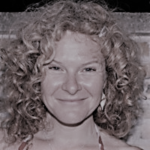The rights, equity and inclusion of marginalised groups must be prioritised if the tide of widening inequalities and injustices is to be stemmed. Continued crises, including the COVID-19 pandemic, climate emergencies, and ongoing violent conflicts, are increasing inequalities and injustices globally. While education has a key role to play in enabling social equality and cohesion, progress towards achieving SDG 4 is slow or in reverse. Many children and youth are out of school or in school but not learning.
In this theme we would like to see how prevailing rules and norms can be transformed so that we can ensure inclusive education and training across an intersectional lens including gender, race, disability, nationality, and sexuality. Education systems, teachers/classrooms, communities, parent/caregivers, and learners may knowingly or unknowingly reproduce harmful social and gender norms, behaviours, and stereotypes that impact on access and learning outcomes as well as learner’s well-being with consequences for both current and future generations.
This theme seeks to learn from diverse contexts to explore how marginalised groups can participate and lead in debates, planning, and decision-making on education, training, and learning. The aim is to identify solutions through a people-centred lens that considers social factors and normative expectations across education systems at local, national, and global levels.
We welcome empirical research, theoretical and conceptual pieces, as well as lessons learned from practice and programming for all levels and forms of education and training, from formal to non-formal and from pre-primary to tertiary, adult basic education to lifelong learning.
Submissions should address one or more of the following questions and topics:
- What does inclusion in a just education system look like?
- Which social and behavioural drivers and barriers influence learners’ access, experience, and wellbeing in education and training and how can we promote and address them respectively?
- How can marginalised groups participate and lead in debates and planning of education, training, and learning?
- How/can applied social and behavioural science and social and behaviour change approaches advance equitable and inclusive education and training?
- With the complexities in global-national-local relationships, what does equity and inclusion in education and training mean on a global, national, and local scale?
- How can we move from competition and individualism, to cooperation, collectivism and collaboration in and through education, training and learning?
Sub-theme convenors
Read the interview with the convenors about the aspirations for the theme


